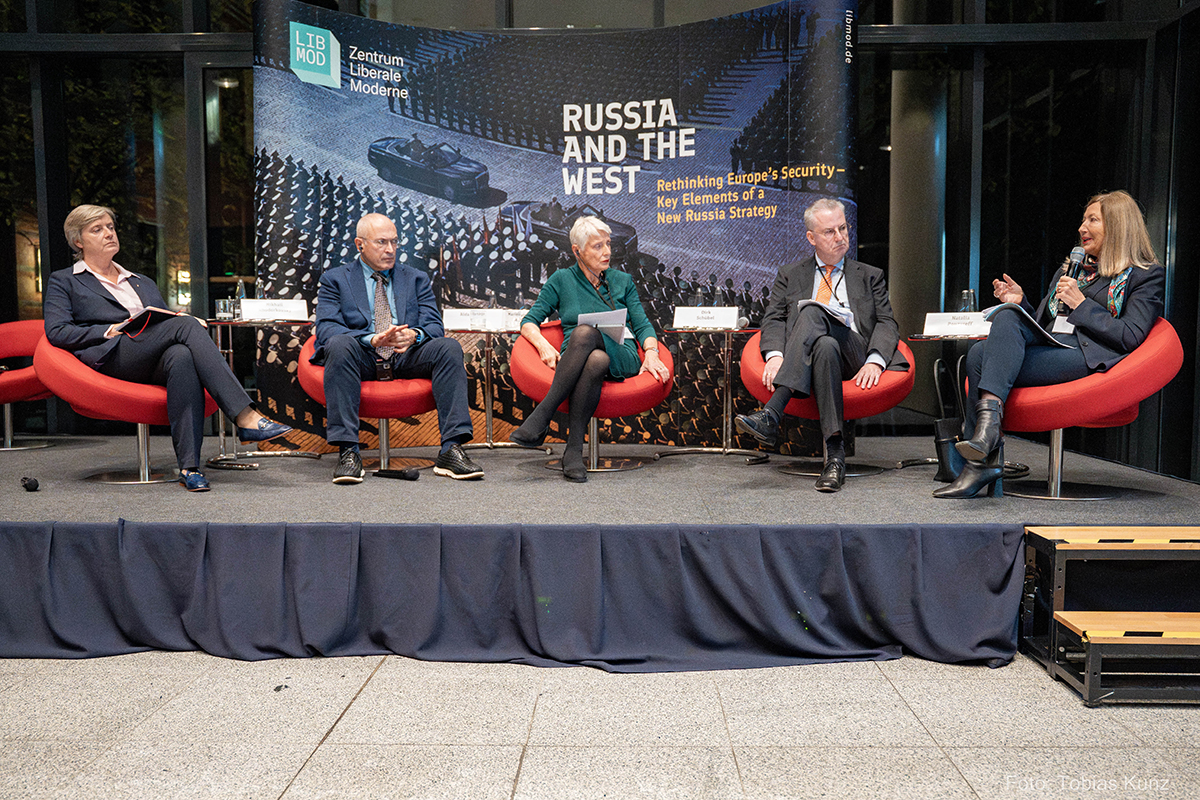Liberalism is dead, long live Liberalism!

Over the last 200 years, Liberalism has been a stunning success story. It brought forward liberty and prosperity for the many instead of privileges for the few. Yet, today liberal thinking and politics are under siege. To regain public support, they need a profound update, offering liberal answers to the major challenges our societies are facing: globalization and digital revolution, climate change and global migration, growing inequality and fear of the future.
Liberalism is in trouble. Antiliberal counter-movements are afoot around the globe. Authoritarian populists are seizing power in more and more countries. Deep-seated antiliberal traditions in Germany exist at both ends of the political spectrum. When Christian Lindner, leader of the German liberal party FDP, speaks of political Liberalism, it sounds as if he were talking about a defiant little minority; when others speak of his party, it’s as the German songwriter Franz Josef Degenhardt once said: Don’t play with the dirty kids, don’t sing their songs.
Yet we owe Liberalism much of our modern achievements: inalienable human rights, the right to individual self-determination, as well as the foundations of our democratic republic: government by and for the people, free elections, rule of law, protection of minorities, an independent judiciary, freedom of the press, and a dynamic economy based on entrepreneurship, competition, and open markets.
The combination of liberal political systems and capitalist market economies has afforded us a hitherto unknown degree of assurance of justice, individual liberties, and prosperity. By the light of day, Liberalism is a historic success story. How did it manage to fall into disrepute?
People are quick to point to neoliberalism. Even though it stems from very different historical roots, it is often equated with market radicalism today. Its mantra of deregulation, privatization, and rigid budgeting has indeed weakened public institutions. Deregulation of financial markets brought about the deep crisis of 2007/2008, discrediting globalization. The growing low-wage sector, precarious work arrangements, a crass disparity of wealth, and organized tax avoidance by international corporations have created a constant ambient noise that is buzzing with a notion of injustice. Liberalism seems to turn a blind eye to the social question. It sides with the successful rather than with those who struggle. It is no coincidence that the FDP is still struggling with its self-proclaimed label of being the “party of high-income earners”.
The liberal camp – I’m using this term in its European tradition, which is different from the specific meaning of “liberal” in the US — also offers few convincing solutions concerning the threat to the ecosystems on which our human civilization depends – climate, soils, oceans. While their caveats of an ecological nanny state are legitimate, Liberals discredit themselves when they downplay the urgency of ecological transition. Liberalism has yet to write a playbook for an ecological policy that reconciles climate protection with a dynamic market economy, sustainable economic growth, and diversity of lifestyles.
Liberal voids
There are deeper reasons why liberal politics is on the defensive. Classic Liberalism eschews the question how to maintain social cohesion beyond the invisible hand of the market. To many Liberals, catchwords such as solidarity or community have a suspicious collectivist ring to them, as does the notion of an omnipresent welfare state. They consider redistribution the work of the devil; a violation of the unadulterated tenets of market economy.
The avant-gardes of liberal thought deliberately decline to make grand future projections. Their objective is to keep the future open – it will emerge from the free play of the forces at work, from the sum of individual decisions made by a myriad of actors. Liberal politics is all about trial and error, reform rather than revolution, quiet doubt rather than vociferous certainty, competition for the best solution rather than proclaiming grand ideas about how the future is to be arranged. This is wise and humane. Sheer pragmatism, however, falls short. In times of growing uncertainty, a solid concept for the future is essential: Who do people trust to best master the challenges of globalization and digital revolution, climate change, and global migration?
Populists from the left and right are stirring strong emotions. Fear, hatred, pride, nationalism — making the champions of liberal democracy look a little bland in comparison. While “constitutional patriotism” is a good idea, it remains an abstract construct. The democratic republic is more than the sum of its institutions. It relies on joint action by its citizens, on negotiating common goals. That won’t work without a notion of what we want for our future. Anxiety about the future is the mental soundboard of authoritarians. We need confidence that we can create a better future rather than dread it as a doomed fate that will inevitably roll over us.
In a time of turbulent change, we feel an increased need for security and solidarity, for finding assurance in our community. Nationalists promise social and emotional security by retreating into the confines of our national state and national community as a bulwark against the storms that are raging outside. Liberalism will only be able to emerge from its defensive corner if we can respond to this conservative need for security and identity and formulate liberal answers to these needs. When Emanuel Macron speaks of a “Europe that protects”, he is hitting a nerve.
Security in a changing world
Economic globalization needs to be embedded in a social and ecological framework. Global migration needs to be regulated. Openness towards technological innovation needs a minimum of individual ability to keep pace with new technologies as well as a minimum of social security to cushion the fallout from disruptive transformation. The mother of all liberties is freedom from fear. Those who live in fear of social failure are not free. Real-life freedom also means to be able to move about the public space unafraid. Those who neglect public safety and order are tilling the ground for authoritarian populists.
It is not enough to keep invoking our love of freedom and a defense of liberal values. Modern liberalism must bridge seeming dichotomies: between freedom and safety, individuality and solidarity, diversity and identity, cosmopolitanism and patriotism, economic dynamics and ecological responsibility. It must shed its habit of simply pitting ‘the market’ versus ‘the state’ and recognize and appreciate the importance of public institutions in upholding equal liberty for all.
Markets rely on prerequisites they cannot generate on their own: an assurance of justice, social peace, protection of the natural resources that assure our livelihood, a functional set of rules governing competition, a strong science and educational system, a modern infrastructure. None of this is free. The slogan “smaller government is better” is just as misleading as its opposite.
In a nutshell: We need a contemporary renewal of Liberalism that offers both liberty and security. We must deliver on the liberal promise of equal opportunity and upward social mobility develop a new notion of progress that is more than just a continuation of the status quo. Our confidence that liberal democracy is and shall remain the more successful, more innovative, and more just system is in peril. Now is the time to deliver.
The German version of this essay was published by the “WELT”, Nov. 1, 2018
![]()
Did you like thike this article? If yes, you can support the independent editorial work and journalism of LibMod via a simple donation tool.
Wir sind als gemeinnützig anerkannt, entsprechend sind Spenden steuerlich absetzbar. Für eine Spendenbescheinigung (nötig bei einem Betrag über 200 EUR), senden Sie Ihre Adressdaten bitte an finanzen@libmod.de
Verwandte Themen
Newsletter bestellen
Mit dem LibMod-Newsletter erhalten Sie regelmäßig Neuigkeiten zu unseren Themen in Ihr Postfach.





